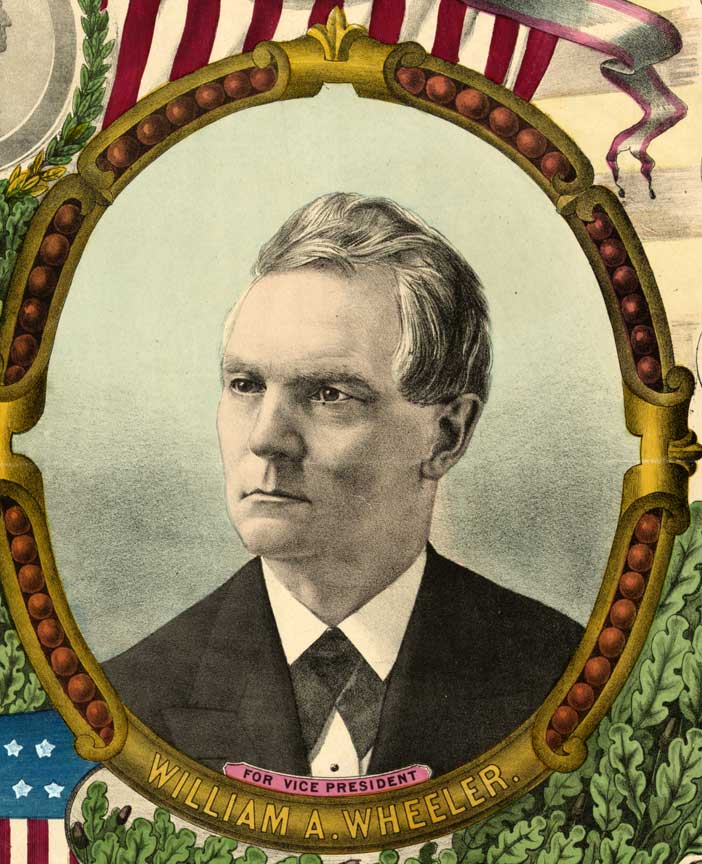William Wheeler

Wheeler, William A. (1819-1887) Vice President of the United States
William Almon Wheeler was born in Malone, New York, on June 30, 1819. His father’s death in 1827 left the family in dire financial straits. Young Wheeler worked his way through preparatory school and two years of college at the University of Vermont, before his financial situation forced him to withdraw before graduating. He studied law with a lawyer in Malone, New York, and was admitted to the New York bar in 1845, the same year in which he married Mary King. Wheeler went on to serve as district attorney of Franklin County from 1846 to 1849. The next year, he was elected to the state legislature as a Whig.
In the mid-1850s, Wheeler became a Republican, like many other northern Whigs. He joined the state Senate (1858-1860), and served as president pro tempore of that body. In 1861, Wheeler won election to the US House of Representatives, although he served only one term. He remained active in state politics, and was reelected to the House in 1869. He became best known for his honesty, demonstrated in such moves as voting against the 1873 "Salary Grab," in which Congress voted itself a major salary raise and $5,000 in back pay. When the bill passed, Wheeler returned the back pay he was given.
In 1876, Wheeler was nominated Republican vice-presidential candidate, running with presidential candidate Rutherford B. Hayes. Although he was almost unknown in national politics, his clean record and New York origins made him an attractive candidate to the convention delegates. The election of 1876 proved to be one of the most controversial in American history. Although the Democrats appeared to win a majority in both popular and electoral college votes, Republican leaders challenged the results. After months of wheeling and dealing, an electoral commission, appointed by Congress, decided that Hayes and Wheeler would be the next to sit in the White House.
As Vice President, Wheeler led the Senate conscientiously. Nevertheless, he often quoted Benjamin Franklin’s description of the vice president as being better titled "His Superfluous Highness." After his term as Vice President ended, Wheeler retired to Malone, New York, where he died six years later, on June 4, 1887.
22, 1889.
 >
>